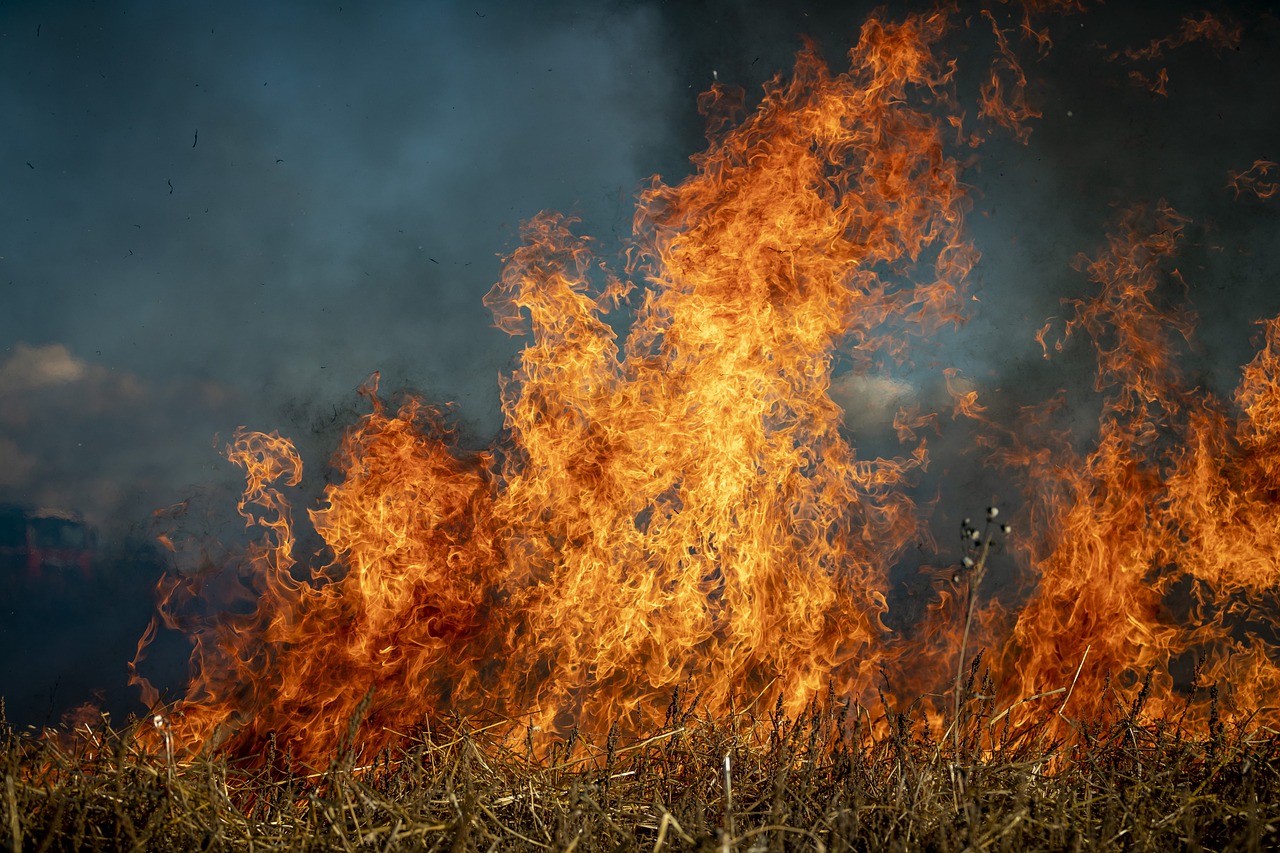Severe and several cases of wildfire around the world have left people in grave worry. Not only these have become frequent, but deadly too, due to the unpredictable nature and impact of climate change.
Europe, a continent, that usually sees moderate temperature, is burning – in the sun and through the wildfire. From Greece to Italy, Spain and Portugal, Turkey and Switzerland, European countries have been battling wildfires in the recent times as the continent continues to be gripped by a heatwave.
The continent is experiencing another year of droughts and wildfires. The effects of scorching, dry weather, has led to wildfires in many regions. Earlier, June was recorded as the hottest month in the 174-year history of temperature monitoring. Now, July has been confirmed as the hottest month on record globally after several heatwaves in parts of Europe, according to the Copernicus Climate Change Service (C3S).
Europe is Burning
In July, strong winds and temperatures above 40°C fuelled blazes that ripped through farms and factories and forced more than 20,000 visitors and locals to flee seaside resorts and their homes on the island of Rhodes, Greece. Further, in July, the fire brigade reported 61 wildfires across Greece in just 24 hours.
Similarly, three elderly people died on the Italian island of Sicily as firefighters battled 1,400 fires across southern parts of the country between 23 and 25 July.
Across the Mediterranean in Algeria, at least 34 people died and more than 8,000 firefighters were brought in to bring flames under control, as fires spread to neighbouring Tunisia.
Meanwhile, it took 250 firefighters and nine aircraft to control a wildfire that burnt 400 hectares of woodland on the Spanish island of Gran Canaria. Further, on 10 August 2023, València airport, in Spain recorded 46.8°C (116°F). This beats the previous all-time heat record by over 3°C.
Further, more than 600 firefighters were deployed to tackle blazes in the Portuguese mountainous area of Cascais, not far from the capital Lisbon.
The World is Suffering
UN Secretary-General Antonio Guterres has warned that “the era of global boiling has arrived”. He says that it is a cruel summer, for the vast parts of North America, Asia, Africa & Europe. He further called for an accelerated climate action in response to accelerating temperatures.
https://twitter.com/antonioguterres/status/1684715292348588032?s=20
The haunting visuals from Hawaii sheds light on how dangerous wildfires can be as it gulps everything that comes in its path, destroying homes, buildings, and lives. The death toll has jumped to 53 in the Maui fires.
The fires of Amazon rainforest is no different. Scientists have predicted an intense El Niño (unusually warm water in the Pacific leading to disruptions of weather patterns) during the second half of 2023. For the Amazon, this raises concerns about a potentially devastating fire season. The combination of El Niño, record-breaking temperatures for the past eight years, and deforestation creates conditions that are ripe for fires.
In India, the Ministry of Environment, Forest, and Climate Change said that the Forest Survey of India has reported alarming numbers of forest fires detected over the past five years using the SNPP-VIIRS sensor – 2,10,286, 1,24,473, 3,45,989, 2,23,333, and 2,12,249, respectively. The numbers raise concerns about the escalating threat of forest fires across the nation.
Impact of wildfire
Evacuation is the immediate response to wildfire. Locals and tourists both feel the impact of it. Wildfires disrupts livelihood of people, burns home, and affects the economy of the place. However, it is not limited to just this. The threat of food insecurity also increases with wildfire, as tons of crops get wasted on farms that get caught in these wildfires.
Its environmental impact is also too high. Wildfire smoke is a mixture of hazardous air pollutants, such PM2.5, NO2, ozone, aromatic hydrocarbons, or lead. In addition to contaminating the air with toxic pollutants, wildfires also simultaneously impact the climate by releasing large quantities of carbon dioxide and other greenhouse gases into the atmosphere.
The impact can also be felt on temperature that continues to rise. Meanwhile, glaciers continue to melt. Antarctic sea ice has also been at record lows this July, freezing less than in any other winter since satellites began observations in 1979.
With climate change leading to warmer temperatures and drier conditions and the increasing urbanization of rural areas, the fire season is starting earlier and ending later. Wildfire events are getting more extreme in terms of acres burned, duration and intensity, and they can disrupt transportation, communications, water supply, and power and gas services.














